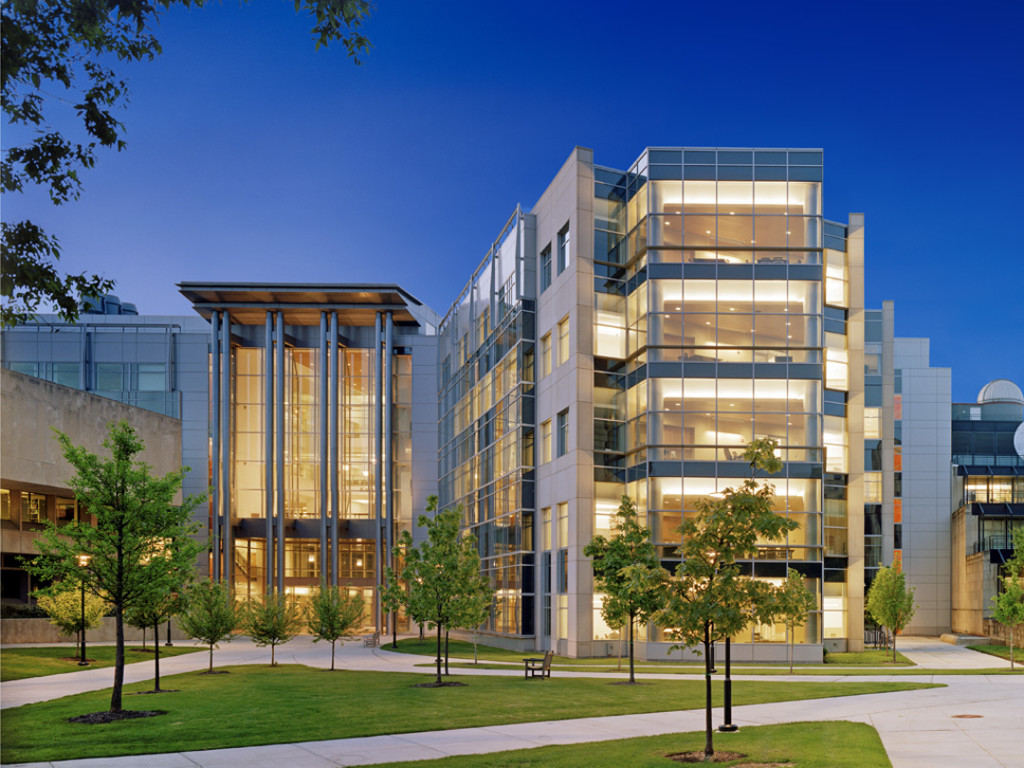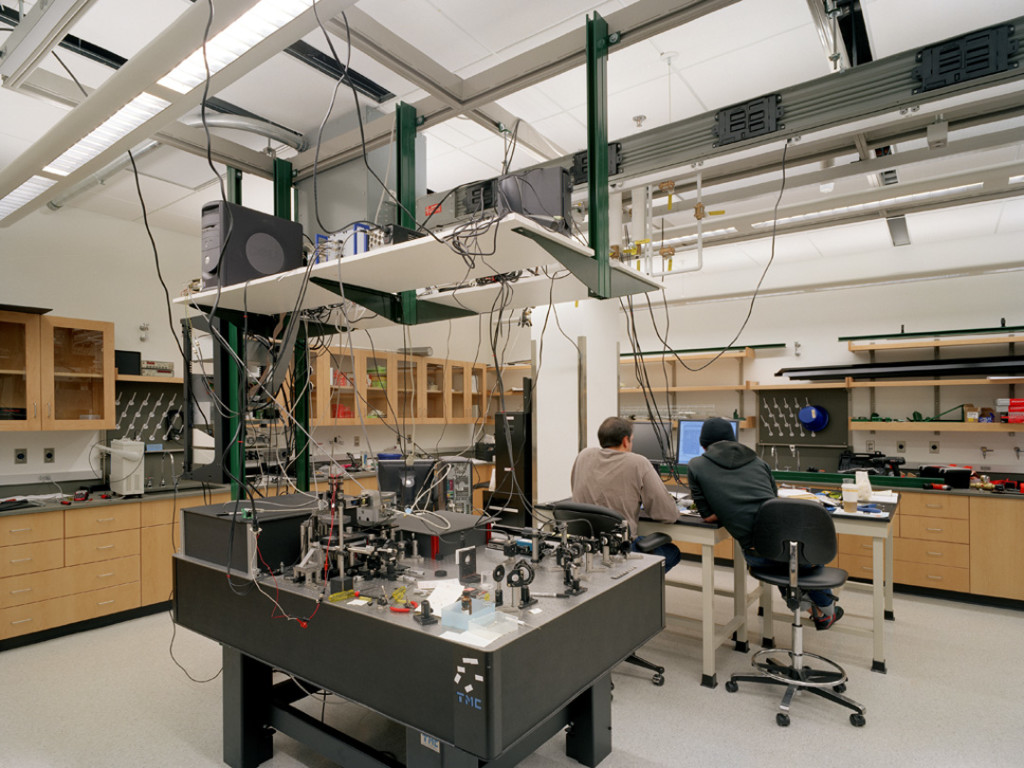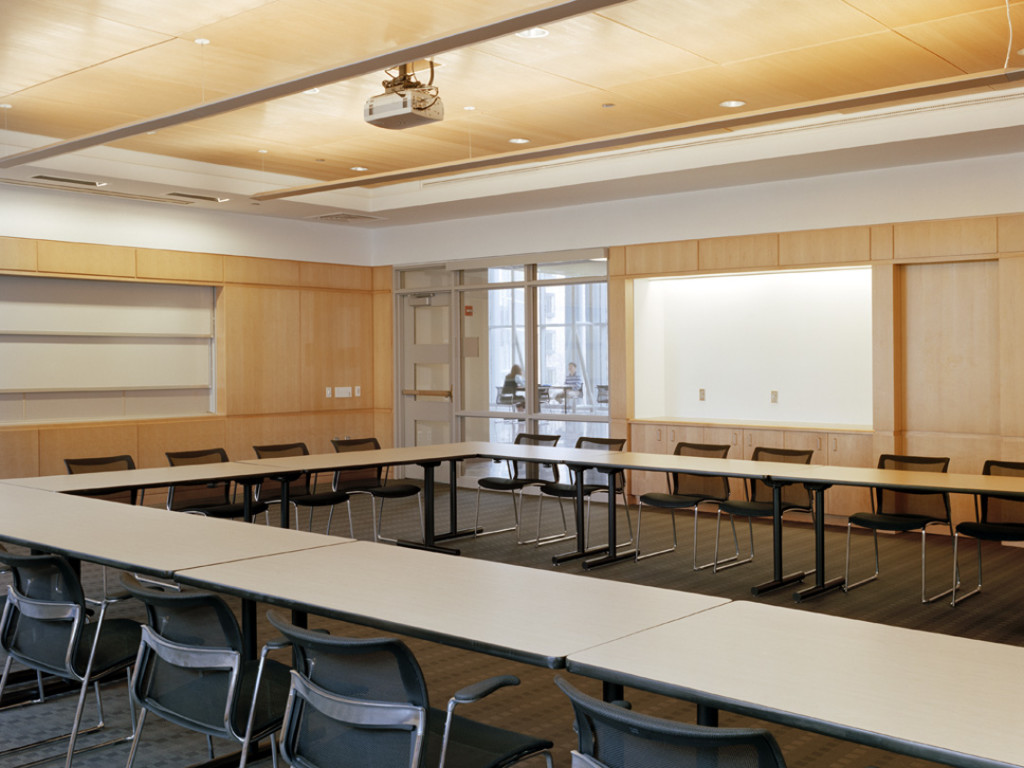Unlocking Discovery: The Gordon Center For Integrative Science
In the heart of one of the world's leading academic institutions, a beacon of scientific innovation stands tall: the Gordon Center for Integrative Science. This monumental facility at the University of Chicago is not merely a building; it is a vibrant ecosystem where the boundaries of traditional disciplines dissolve, fostering a collaborative spirit that drives groundbreaking research at the very frontier of contemporary science. It embodies the university's unwavering commitment to pushing the limits of human understanding, providing an unparalleled environment for interdisciplinary exploration and discovery.
The Ellen and Melvin Gordon Center for Integrative Science, often referred to as GCIS, represents a pivotal leap forward in how complex scientific challenges are approached. Designed to facilitate the collaborative and integrative nature of evolving multidisciplinary science, it serves as a nexus for brilliant minds from diverse fields to converge, share insights, and pioneer solutions that would be impossible within isolated silos. Its very existence underscores a fundamental truth: the most profound breakthroughs often emerge at the intersection of different knowledge domains, making the Gordon Center for Integrative Science an indispensable asset in the global scientific landscape.
Table of Contents
- The Vision Behind the Gordon Center for Integrative Science
- An Architectural Marvel: Scale and Significance of GCIS
- A Hub of Diverse Disciplines: Who Calls GCIS Home?
- Research at the Frontier: Pioneering New Knowledge
- Fostering Collaboration: The Essence of Integrative Science
- Enhancing Scientific Education and Training
- Strategic Location and Accessibility at the University of Chicago
- The Future Impact of the Gordon Center for Integrative Science
The Vision Behind the Gordon Center for Integrative Science
The establishment of the Ellen and Melvin Gordon Center for Integrative Science marked a transformative moment for the University of Chicago. Completed in 2005, this facility was conceived with a clear and ambitious vision: to create a space where the traditional barriers between scientific disciplines could be dismantled, allowing for a more fluid and dynamic exchange of ideas. President Randel, upon its unveiling, aptly described it as "the university’s largest and most technologically advanced building," a testament to its pivotal role in the institution's future. This vision wasn't just about constructing a large building; it was about cultivating an environment that inherently supports the university’s overarching goal of conducting research at the absolute frontier of contemporary science. The very name, "Integrative Science," speaks volumes, highlighting a commitment to a holistic approach where complex problems are tackled from multiple angles, drawing on expertise from various fields. This forward-thinking philosophy is what truly sets the Gordon Center for Integrative Science apart, positioning it as a leader in global scientific inquiry.An Architectural Marvel: Scale and Significance of GCIS
The Gordon Center for Integrative Science is not just a research hub; it is an architectural and engineering marvel designed to meet the rigorous demands of cutting-edge scientific exploration. Spanning an impressive 430,000 square feet, the GCIS building at 929 E 57th Street, Chicago, IL 60637, is a testament to the University of Chicago's dedication to providing world-class infrastructure for its researchers. This immense scale allows for the housing of multiple departments and institutes, each requiring specialized laboratories, sensitive equipment, and collaborative workspaces. The sheer size facilitates the necessary physical separation for highly sensitive research, while simultaneously promoting proximity for interdisciplinary interactions. The design of the GCIS carefully considers the unique needs of both physical and biological sciences, providing sensitive and critical research space. This means incorporating features like vibration isolation, precise temperature and humidity control, and advanced ventilation systems – all crucial for experiments that demand the utmost precision and stability. The building's state-of-the-art infrastructure supports a wide array of advanced scientific tools and technologies, from high-resolution imaging systems to sophisticated computational clusters. This commitment to providing a technologically advanced environment ensures that scientists at the Gordon Center for Integrative Science have access to the very best resources, enabling them to pursue ambitious research projects with confidence and accuracy. Its status as the university's largest and most technologically advanced building underscores its strategic importance in the pursuit of scientific excellence.A Hub of Diverse Disciplines: Who Calls GCIS Home?
One of the defining characteristics of the Gordon Center for Integrative Science is its role as a vibrant ecosystem for a multitude of scientific disciplines. This interdivisional research building strategically houses key departments and institutes, fostering an environment where cross-pollination of ideas is not just encouraged, but engineered. The GCIS is home to the Biological Science Division and the Physical Science Division, two pillars of scientific inquiry that, when brought together under one roof, unlock unprecedented opportunities for collaborative research. This co-location is critical for truly integrative science, allowing researchers to seamlessly transition between biological and physical perspectives on complex problems. The synergy created by these co-located divisions is palpable. For instance, a physicist might collaborate with a biologist to develop new imaging techniques for living cells, or a chemist might work with a materials scientist to engineer novel biocompatible materials. This close proximity and shared resources facilitate informal discussions, spontaneous collaborations, and a deeper understanding of each other's methodologies and challenges. The Gordon Center for Integrative Science truly epitomizes the fusion of multidisciplinary research and education, serving as a powerful magnet for top talent and groundbreaking projects from across the scientific spectrum.The James Franck Institute: Bridging the Physical Sciences
A cornerstone of the Gordon Center for Integrative Science is the James Franck Institute (JFI). This renowned institute, located in both the east and west wings of the GCIS building, is a hub for University of Chicago scientists working at the cutting edge of materials science, condensed matter physics, physical chemistry, and atomic sciences. The JFI's presence within the GCIS is particularly significant because it embodies the very spirit of integrative science. Its researchers are inherently multidisciplinary, often blurring the lines between traditional physics and chemistry to explore the fundamental properties of matter and energy. The James Franck Institute's work often involves the study of complex systems, from the behavior of electrons in exotic materials to the intricate processes of molecular self-assembly. By being housed within the Gordon Center for Integrative Science, JFI scientists benefit from immediate access to colleagues from the Biological Science Division, opening avenues for research into biophysics, soft matter, and the physics of living systems. This collaborative environment accelerates discovery, allowing for the rapid translation of fundamental insights into practical applications and new technologies.Biochemistry and Molecular Biology: Unraveling Life's Code
Also a vital occupant of the Ellen and Melvin Gordon Center for Integrative Science is the Department of Biochemistry and Molecular Biology. This department delves into the intricate molecular mechanisms that underpin life itself, from the structure and function of proteins to the regulation of gene expression. Their research is fundamental to understanding health and disease, and their presence within the GCIS significantly enhances the center's integrative capabilities. The co-location of Biochemistry and Molecular Biology with physical sciences departments like the James Franck Institute creates unique opportunities for interdisciplinary research. For example, biochemists might collaborate with physical chemists to study enzyme kinetics at an atomic level, or molecular biologists might work with materials scientists to design novel drug delivery systems. This synergy is crucial for advancing fields such as structural biology, chemical biology, and synthetic biology. The Gordon Center for Integrative Science provides the ideal environment for these critical interactions, fostering a holistic approach to understanding the complex machinery of life.Research at the Frontier: Pioneering New Knowledge
The core mission of the Gordon Center for Integrative Science is to facilitate research at the absolute frontier of contemporary science. This isn't just a slogan; it's a guiding principle that shapes every aspect of the center's operation. The GCIS provides sensitive and critical research space, equipped with the advanced infrastructure necessary for pioneering discoveries in both physical and biological sciences. This means supporting experiments that push the limits of measurement, observation, and theoretical understanding. Research conducted within the Gordon Center for Integrative Science spans a breathtaking array of topics. Scientists here are exploring the fundamental laws governing the universe, designing new materials with unprecedented properties, unraveling the mysteries of disease at a molecular level, and engineering biological systems for therapeutic or industrial applications. From developing novel quantum computing materials to understanding the intricate folding of proteins, the work performed at GCIS is consistently at the forefront of global scientific inquiry. The collaborative nature fostered by the center means that these individual research efforts often intertwine, leading to synergistic breakthroughs that transcend traditional disciplinary boundaries. It's a place where the next big scientific question is not just asked, but actively pursued with rigor and innovation.Fostering Collaboration: The Essence of Integrative Science
The very name "Gordon Center for Integrative Science" underscores its fundamental purpose: to foster collaboration. In today's complex scientific landscape, many of the most challenging problems—from climate change to curing intractable diseases—require insights from multiple disciplines. The GCIS is designed to break down the silos that can sometimes hinder progress in traditional academic structures. Its architecture and operational philosophy actively encourage interaction among researchers from diverse backgrounds. This collaborative environment is cultivated through various means. Shared core facilities, common meeting spaces, and interdisciplinary research groups are just a few examples. The proximity of the Biological Science Division, the Physical Science Division, the James Franck Institute, and the Department of Biochemistry and Molecular Biology within the same building naturally leads to spontaneous discussions in hallways, cafeterias, and shared laboratories. These informal interactions are often the spark for new ideas and interdisciplinary projects. Furthermore, the center actively facilitates formal collaborations, supporting research initiatives that bring together experts from different fields to tackle complex questions collectively. This commitment to integration ensures that the Gordon Center for Integrative Science remains a dynamic and highly productive environment for cutting-edge research.Enhancing Scientific Education and Training
Beyond its role as a research powerhouse, the Gordon Center for Integrative Science actively enhances scientific education and training. As one of the recognized research centers within the University of Chicago, GCIS plays a crucial role in shaping the next generation of scientists. The collaborative and multidisciplinary environment provides an unparalleled learning experience for graduate students, postdoctoral researchers, and even undergraduate students. Students working within the Gordon Center for Integrative Science are exposed to a wide array of scientific methodologies and perspectives. They learn to think across disciplines, integrating knowledge from physics, chemistry, biology, and engineering to solve complex problems. This interdisciplinary training is invaluable in preparing them for careers in a world where scientific challenges increasingly demand a holistic approach. The center hosts seminars, workshops, and symposia that bring together leading experts from around the globe, providing students with direct access to cutting-edge research and networking opportunities. By actively supporting education and training, the GCIS ensures a continuous pipeline of highly skilled and adaptable scientists who are well-equipped to drive future innovation.Strategic Location and Accessibility at the University of Chicago
The Gordon Center for Integrative Science is strategically situated on the University of Chicago campus, specifically at 929 E 57th St, Chicago, IL 60637, USA. This prime location places it within the vibrant academic ecosystem of one of the world's most prestigious universities, fostering seamless integration with other departments, libraries, and campus resources. Its position on the west side of the University of Chicago campus makes it easily accessible for faculty, students, and visiting researchers. For those traveling by car, paid parking options are conveniently available a few blocks away, including at the Campus North Parking facility. This accessibility ensures that collaborators and visitors can reach the Gordon Center for Integrative Science with ease. The center's location within the larger University of Chicago framework further amplifies its impact, allowing it to leverage the university's extensive network of intellectual capital and shared resources. Being part of such a distinguished academic environment not only attracts top talent but also provides a fertile ground for the cross-pollination of ideas that is so vital to integrative science.The Future Impact of the Gordon Center for Integrative Science
The Gordon Center for Integrative Science is not just a monument to past achievements; it is a forward-looking institution poised to shape the future of scientific discovery. By facilitating the collaborative and integrative nature of evolving multidisciplinary science, the GCIS is uniquely positioned to tackle the grand challenges of the 21st century. The complex problems facing humanity, from developing sustainable energy solutions to understanding the intricacies of the human brain, demand approaches that transcend traditional academic boundaries. The Gordon Center for Integrative Science provides the ideal crucible for such interdisciplinary innovation. As research continues to become more complex and interconnected, the model championed by the GCIS—where biological and physical sciences converge, and where institutes like the James Franck and departments like Biochemistry and Molecular Biology thrive side-by-side—will become increasingly vital. The investment in such a technologically advanced and expansive facility underscores a long-term commitment to pushing the frontiers of knowledge. The breakthroughs originating from the Gordon Center for Integrative Science will undoubtedly have far-reaching implications, influencing fields from medicine and engineering to environmental science and fundamental physics, ultimately benefiting society at large. Its ongoing role in scientific education and training also ensures that its impact will resonate for generations to come, solidifying its legacy as a true pioneer in integrative scientific research.Conclusion
The Ellen and Melvin Gordon Center for Integrative Science stands as a powerful testament to the University of Chicago's commitment to cutting-edge research and collaborative discovery. More than just a 430,000 square foot building, it is a dynamic ecosystem where the brightest minds from diverse fields – from the James Franck Institute to the Department of Biochemistry and Molecular Biology – converge to push the boundaries of knowledge. By fostering an environment where physical and biological sciences seamlessly intertwine, the Gordon Center for Integrative Science is not only conducting research at the frontier of contemporary science but also actively shaping the future of scientific inquiry and education. Its strategic location, state-of-the-art facilities, and unwavering dedication to multidisciplinary approaches make it a landmark facility in the global scientific landscape. The breakthroughs emerging from its laboratories will continue to have a profound impact on our understanding of the world and our ability to solve its most pressing challenges. We invite you to explore more about the groundbreaking work happening at the University of Chicago and the pivotal role of the Gordon Center for Integrative Science. What aspects of integrative science do you find most compelling? Share your thoughts in the comments below!
University of Chicago Gordon Center for Integrative Science – Lam Partners

University of Chicago Gordon Center for Integrative Science – Lam Partners

University of Chicago Gordon Center for Integrative Science – Lam Partners